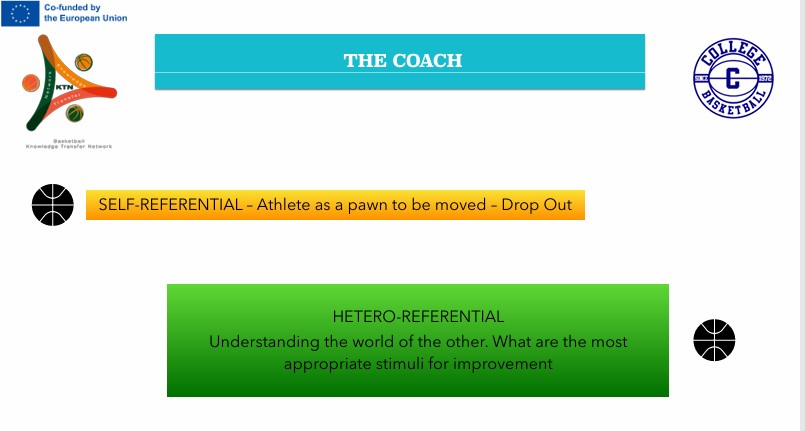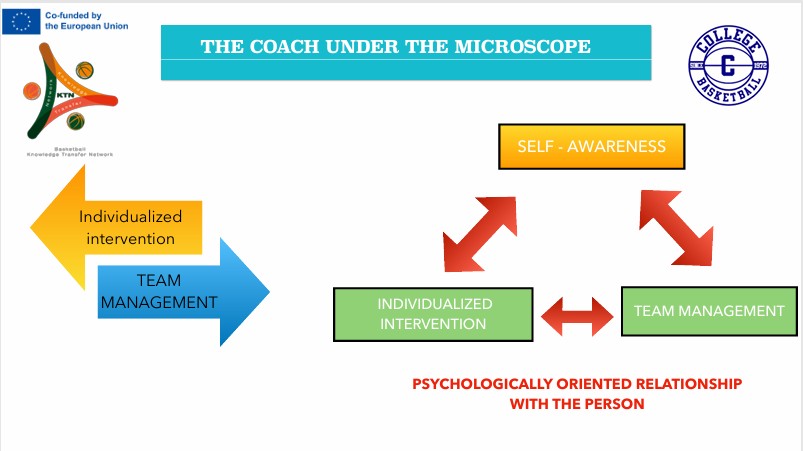The coach and the basic for work
On April 14, 2025, within the framework of the Basketball-KTN knowledge transfer program, College Basketball organized a dedicated training session titled “The Coach and the Basics for Work Construction.” Led by a professional sports psychologist, the meeting focused on one of the most essential aspects of sports development — the role of the coachand the delicate balance required to guide, inspire, and construct meaningful relationships within the athletic environment.
The discussion highlighted that coaching is far more than technical direction or tactical planning; it is a dynamic process rooted in psychological understanding and human connection. The coach, it was explained, constantly moves between two poles: the self-referenced approach, where the athlete is viewed primarily as a performer or an instrument to achieve objectives, and the other-referenced approach, which places the athlete’s individual experience, emotions, and motivations at the center of the training process.
True coaching lies in finding equilibrium between these two dimensions. Within this balance — and at times, within the imbalance — the coach continuously adapts, responding to the needs of both the athlete and the collective environment. This ongoing oscillation between control and empathy, between instruction and listening, defines the art of effective leadership in sport.
A powerful metaphor presented during the session was that of the fencer’s lunge: a moment in which the athlete deliberately loses balance in order to strike. This gesture, both physical and symbolic, represents the dynamic tension inherent in coaching — the constant movement between stability and risk, guidance and exploration. In this process, both coach and athlete become co-participants in a shared journey of discovery and growth.
The session also emphasized that coaching is not only about directing others but also about self-awareness and reflection. This is where metacognition becomes a crucial tool. Through metacognitive awareness, both coaches and athletes learn to observe themselves within the process — analyzing decisions, understanding their emotional reactions, and assessing the outcomes of their actions. This reflective ability transforms experience into learning and turns the training environment into a living space of mutual development.
In the end, the discussion reaffirmed that the coach’s role extends far beyond strategy or performance management. The true foundation of effective work construction lies in building relationships, fostering trust, and nurturing an environment where athletes feel seen, understood, and motivated to reach their potential. Coaching, at its core, is about accompanying athletes in their path toward not only sporting excellence but also personal growth.
Through this initiative, College Basketball and the Basketball-KTN network continue to highlight the human side of sport — emphasizing that coaching is not merely about instruction but about the art of guiding, reflecting, and growing together.

